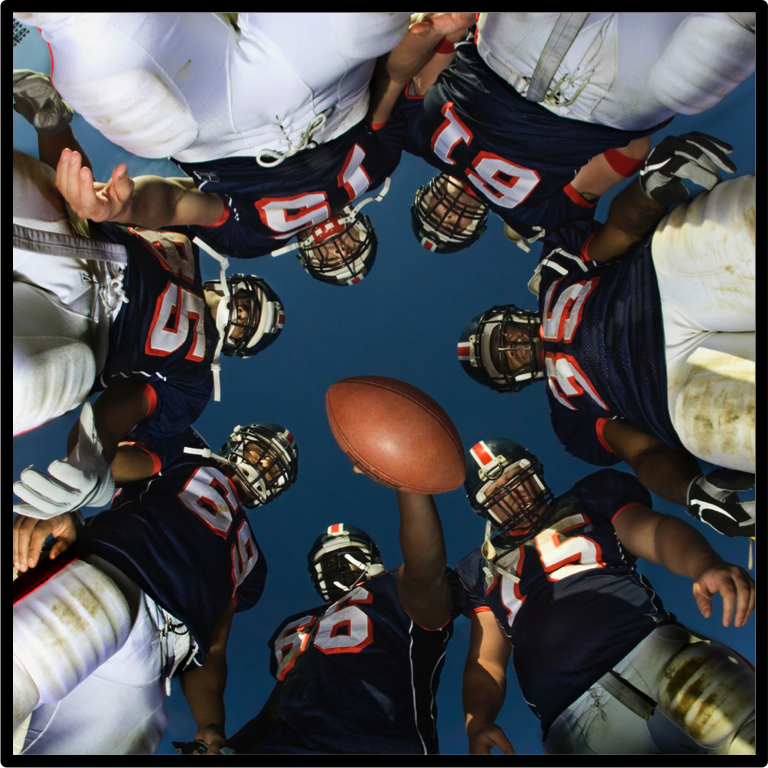 There seems to be a lack of credibility these days. And it’s actually quite disturbing to me.
There seems to be a lack of credibility these days. And it’s actually quite disturbing to me.
Whether we are talking about the government, business, or even sports, it is amazing to me how folks think that they can ignore their own stupidity mistakes and still maintain their drive to achieve success. Talk about a bunch of wasted energy.
Seriously. I am trying to be as explicit as possible when I say that credibility – check that – YOUR credibility is THE cornerstone of sustainable, scalable success. I am not talking about being a one-hit wonder. You know those folks. They are here one day and gone the next. Rather, I am talking about being the kind of person who establishes a reputation for continued success.
So… what exactly is credibility? Merriam-Webster defines it as “the quality or power of inspiring belief.” In our book, Sales Chaos, Brian Lambert and I defined credibility as “the result of taking responsibility for all the relationships, processes, and methodologies within your day-to-day (selling) activities.” If you blend these two ideas together, having credibility means that you have transformed your day-to-day choices into something other people believe in. In other words, people will trust you because of how you have:
- Made ethical decisions
- Managed your time
- Respected others
- Learned from your mistakes
- Used your personal time
- Etc.
That is powerful stuff. Landing the biggest deal of your life, leading a massive change, establishing (or repairing) a critical relationship – if you expect to do it more than once, you MUST rely on the credibility of your day-to-day choices. Otherwise, you are either relying on some past success that no longer exists or old-fashioned luck.
The impact of building/protecting your credibility is twofold.  First, your impact as an individual increases dramatically. Credibility allows you to become a person of influence who can get things done through others. Credibility allows you access to real insights, getting past the obvious, so that you can make the highest quality decisions. Credibility allows you to drive execution, effectively managing the interactions between teams and getting the end result delivered as promised. Take credibility away from your influence, insight, or execution, and your overall impact will immediately start crumbling. Like Pres. Obama (and Pres. George W. Bush). Like former CEO of J.C. Penney, Ron Johnson. Like former Ohio State football player Maurice Clarett. You will become a lousy leader/sales person/coach/father/etc.
First, your impact as an individual increases dramatically. Credibility allows you to become a person of influence who can get things done through others. Credibility allows you access to real insights, getting past the obvious, so that you can make the highest quality decisions. Credibility allows you to drive execution, effectively managing the interactions between teams and getting the end result delivered as promised. Take credibility away from your influence, insight, or execution, and your overall impact will immediately start crumbling. Like Pres. Obama (and Pres. George W. Bush). Like former CEO of J.C. Penney, Ron Johnson. Like former Ohio State football player Maurice Clarett. You will become a lousy leader/sales person/coach/father/etc.
 Second, your impact as an organization is just as tied to credibility as your individual impact is. The day-to-day habits of credibility when your company is small are just as important when your company is large. The quickest way to dissolve your impact in the market is to allow your day-to-day choices to slide. Ask Research In Motion. Ask Kodak. Ask Sears. Once world-championship level giants of industry, their very survival lies in whether they can change their destinies through their day-to-day choices.
Second, your impact as an organization is just as tied to credibility as your individual impact is. The day-to-day habits of credibility when your company is small are just as important when your company is large. The quickest way to dissolve your impact in the market is to allow your day-to-day choices to slide. Ask Research In Motion. Ask Kodak. Ask Sears. Once world-championship level giants of industry, their very survival lies in whether they can change their destinies through their day-to-day choices.
Credibility also impacts the growth strategy of an organization. The ability of a start-up business to turn on repeatable, transactional sales rests on the credibility that start-up business established through one-off, high touch customer relationships. Credibility drives revenue. The ability of a church to increase its presence in a community rests on the credibility of what that church has already become known for doing. Credibility drives expansion. The ability of a university to gain the attention of next-generation students and donors rests on the credibility that school has built as a hotbed of innovation and continuous improvement/change. Credibility drives recruitment.
The bottom line is this: I cannot tell if a person/business/church/university/etc. is on the right track to sustainable, scalable success by looking at their results. Results, no matter how good (or how bad) only describe the past. And that past could just as easily have been driven by showing up at the right place and at the right time. ANYONE could have succeeded in that environment. If I want to really know if a person/business/church/university is on the right track to sustainable, scalable success, I will look at their day-to-day choices. How committed they are to building and protecting credibility – as proven by the quality and consistency of the day-to-day stuff – really is the difference between being lucky and being good.
I mua. Onward and upward.


Recent Comments